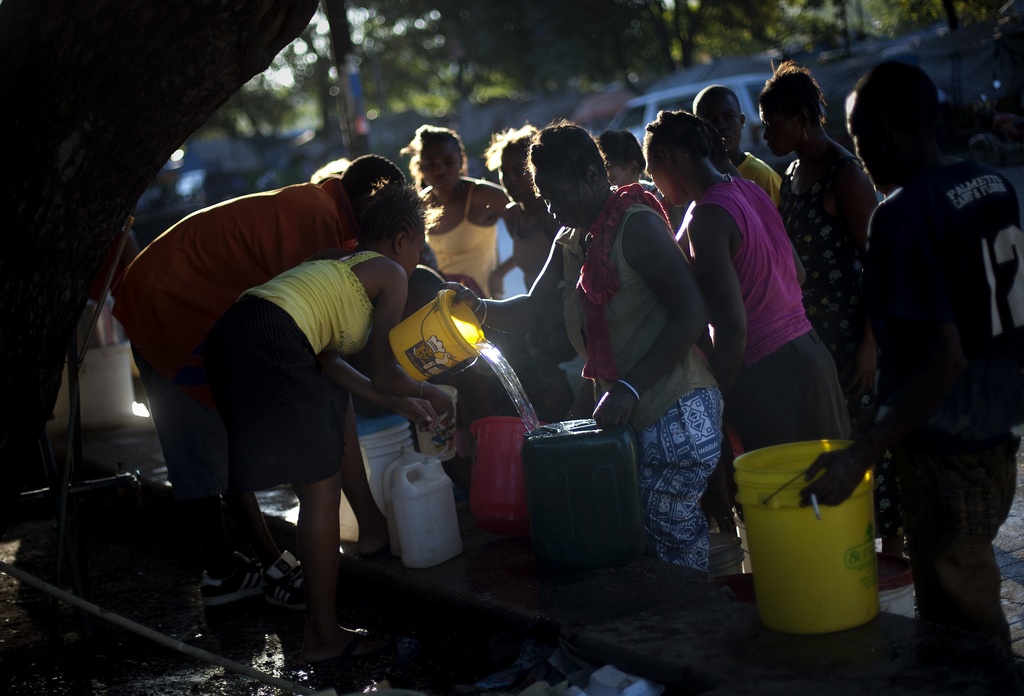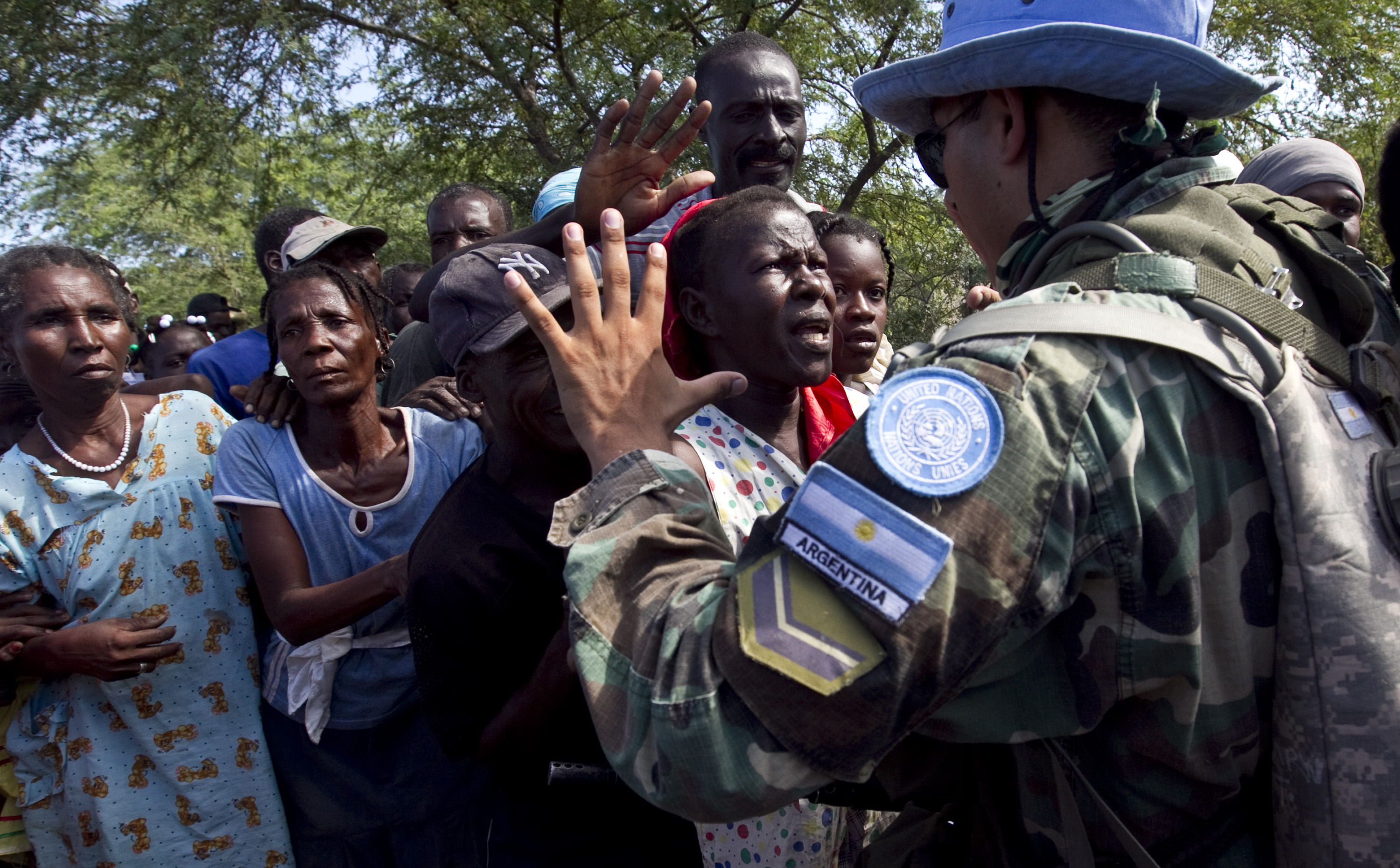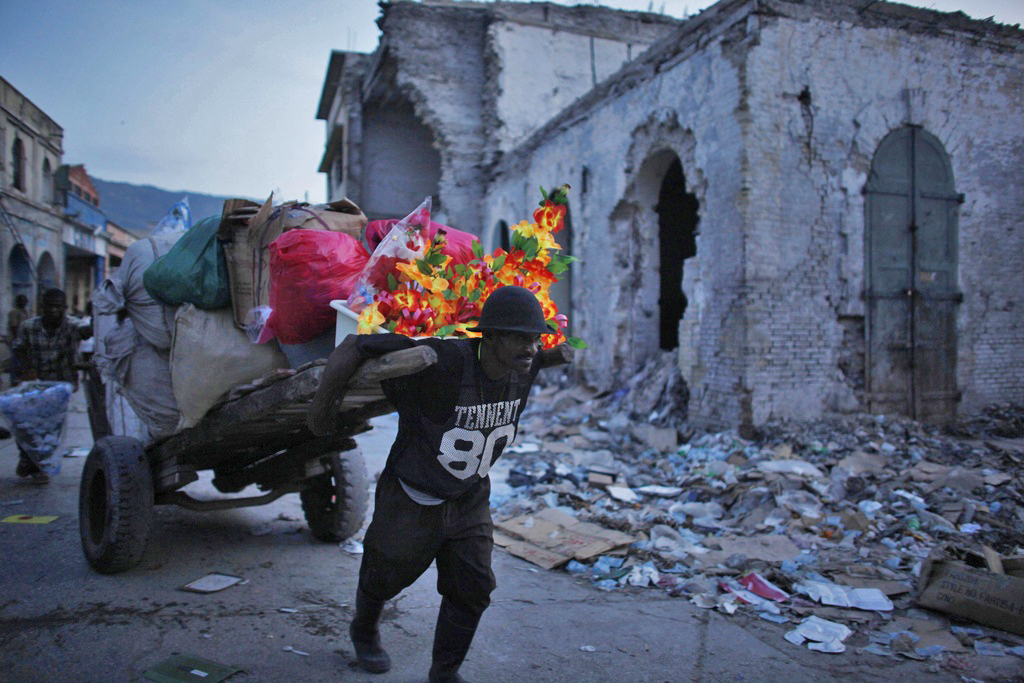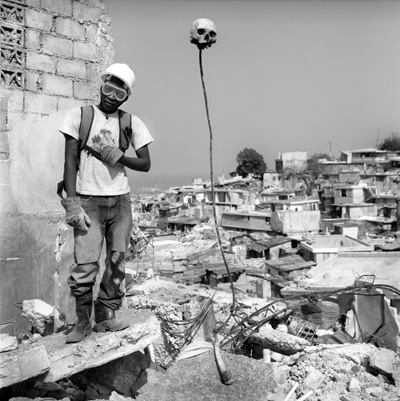Work stepped up as Haiti cholera cases rise

Cholera is still spreading in Haiti and is here for the foreseeable future, Karin Mathis, Caritas’ Programme Manager and Delegate in Haiti, tells swissinfo.ch.
The Swiss church charity this week boosted its anti-cholera efforts in the country, raising its funding to SFr600,000 ($607,000). Hygiene and information are key in stopping the disease, it says.
Fears over cholera are high in Haiti. Residents in the northern and central parts rioted this week over suspicions that the month-old epidemic was brought to the island by United Nations peacekeepers from Nepal.
The UN has reported disruption to its programmes, but Caritas Switzerland, which works with local partners, remains unaffected.
Cholera has now spread beyond Haiti’s borders.
swissinfo.ch: What is the cholera situation at the moment in Haiti?
Karin Mathis: Cases of cholera are still rising and it’s also geographically expanding. At the moment, the official numbers are around 1,000 deaths and over 17,000 hospitalised. There are now cases in seven out of ten departments in Haiti.
We can assume that there are probably more cases that have just not been registered because not everybody has access to or arrives in time at hospitals or health centres. So for the moment it’s quite clear that the cholera situation will still be a concern for a longer period.
swissinfo.ch: In terms of cholera spreading: there’s been a first case in the neighbouring Dominican Republic and also in the United States.
K.M.: Looking at our globalisation and migration in the world, it’s not very surprising and also when you consider the World Health Organization information that 75 per cent of people are only carriers of cholera or are infected but don’t show the symptoms.
On the other hand, it must also be said that cholera is a tricky, tricky sickness in the sense that you can die quite quickly from it. However, it’s also easy to cure and there are easy prevention mechanisms. It’s easy to prevent given good sanitation conditions, hygiene, access to safe water and being able to prepare food safely, but not easy for a country like Haiti where, of course, sanitation conditions are poor.
swissinfo.ch: How is the mood on the ground? There has been anti-UN feeling.
K.M.: People are of course feeling a bit scared, cholera is a new sickness, it’s spreading so there’s also a tendency of people, especially the less well educated, to stigmatise the sickness meaning there can be very direct consequences. I’ve heard of cases here where a person was sick but didn’t manage to find a motorcycle driver to take him to a health centre simply because everybody’s afraid of being infected and of being in contact with such people.
There’s really a big need to inform people about what cholera is, how people become infected and what can be done against it. The fact that it’s still spreading and there are now also cases in [the capital] Port-au-Prince is not very good news.
swissinfo.ch: Caritas has stepped up its work in Haiti to fight cholera. What has this involved?
K.M.: We work with our local organisations in Gonaïves, which is the capital of the Artibonite region where most of the cases have been detected for the moment and where the cholera outbreak started. These are long-standing partners who have already been in the country for many years. They are doing distributions of hygiene material and water filters to families and also supporting health posts. They are also doing radio campaigns and distributing information leaflets on cholera. And then we are supporting 12 schools also here in Gonaïves, informing children on prevention mechanisms and providing them with drinking water.
swissinfo.ch: What is the outlook for Haiti?
K.M.: The big need now is to improve the sanitary conditions. People here, especially in rural areas, but also in slums in the cities, hardly have access to safe water. They’re still drinking and washing themselves in the river, they don’t have latrines and they’re not very conscious of hygiene measures that would prevent them from getting sick. So there’s a big job to be done in that area and, also, work wise for us, that means that we will from now on include those components in our other projects such as our agricultural projects.
The extra funding allows Caritas to extend the work it began at the end of October.
Also participating in the financing of the boosted Caritas programme are the Swiss Agency for Development and Cooperation and Swiss Solidarity, a fundraising charity led by the Swiss Broadcasting Corporation, swissinfo.ch’s parent company.
The programme allows for the distribution of serum, disinfectant and face masks in a hospital and seven health centres in Artibonite. It is also handing out 6,000 hygiene sets and 2,000 water filters.
A radio campaign and information brochure is helping inform the population. 12 schools are also being targeted with information and clean water.
In other Swiss efforts: Switzerland announced at the end of October that it had sent two water specialists to the island to help with the fight against the cholera outbreak.
Cholera is an acute diarrheal infection caused by contact with or ingestion of food or water contaminated with the bacterium Vibrio cholerae 0:1.
Provision of safe water and sanitation is critical in reducing the impact of cholera and other waterborne diseases. Up to 80% of cases can be successfully treated with oral rehydration salts.
Health officials expect the Haiti cholera epidemic will now become endemic, joining illnesses like malaria, tuberculosis and HIV/Aids.
It is the first case reported in Haiti since WHO started collecting data in 1948. Experts say the source of the Haiti outbreak remains a mystery. It may have been imported or present in the environment; the climate or salinity of the water may also play roles.
Cholera is the latest disaster to hit the country: in January it was hit by a devastating earthquake, leaving about 1.3 million people homeless.

In compliance with the JTI standards
More: SWI swissinfo.ch certified by the Journalism Trust Initiative




You can find an overview of ongoing debates with our journalists here. Please join us!
If you want to start a conversation about a topic raised in this article or want to report factual errors, email us at english@swissinfo.ch.